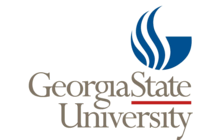“Georgia State is showing, contrary to what experts have said for decades, that demographics are not destiny. Students from all backgrounds can succeed at comparable rates.”- Tim Renick, executive director at the National Institute for Student Success at Georgia State University.
By Jack Bernard, contributing columnist
PEACHTREE CITY, Ga. | Georgia State University has become synonymous with the rise of Atlanta as a progressive city. The Social Action Alliance (SAA) is a new program at GSU that furthers its commitment to social justice.
 Many Georgians don’t realize the impact that Georgia State University (GSU) has on both the metro region and Georgia. GSU has a $2.5 billion annual economic impact on the state. It is the largest university in Georgia, with 54,000 students and campuses downtown as well as in Alpharetta, Decatur, Clarkston, Dunwoody and Newton County. GSU enrolls 6,340 students from Gwinnett.
Many Georgians don’t realize the impact that Georgia State University (GSU) has on both the metro region and Georgia. GSU has a $2.5 billion annual economic impact on the state. It is the largest university in Georgia, with 54,000 students and campuses downtown as well as in Alpharetta, Decatur, Clarkston, Dunwoody and Newton County. GSU enrolls 6,340 students from Gwinnett.
It began in 1913 as the Evening School of Commerce of Georgia Tech. In 1947 it came under the umbrella of the University of Georgia, before becoming independent as a college in 1955. GSU has been a progressive force in Georgia, providing access to working class students who otherwise might not pursue higher education. In fact, its student body is 60 percent minority. Which gets us back to the Social Action Alliance (SAA) program.
 The SAA was initiated on GSU’s campus by Sally Wallace, dean of the Andrew Young School of Policy Studies. It is part of a larger national program, the NextGen Service Corps movement, which is designed to help college students get directly involved in local civic affairs.
The SAA was initiated on GSU’s campus by Sally Wallace, dean of the Andrew Young School of Policy Studies. It is part of a larger national program, the NextGen Service Corps movement, which is designed to help college students get directly involved in local civic affairs.
With the fragmented nature of our nation, programs like the SAA are vital. According to younger voters, our democracy is not doing well at all. The majority of citizens 18-29 years of age that were polled believe that our democracy is unhealthy, troubled, functioning poorly and failing. In light of these distressing opinions, GSU’s students are hungry for direction regarding how to make a difference and be effective community advocates.
Program Director Tammie Green is an alumna of the Andrew Young School, where the SAA initiative is housed. She says she is excited to “offer a counter to the apathetic energy that has resulted from a global pandemic and challenging political times.”
The Social Action Alliance’s mission is “To inspire and prepare socially empathetic collaborators to identify and activate their strengths for the good of all” with the overarching vision of “embedding collective social action in the university culture to promote public service beyond.”
I have two degrees from GSU obtained over a period of 10 years from 1967-1976. Like many, I attended at night, working to support my wife and children. I would never have been able to become a successful business executive without GSU.
Frankly, when I have gone to games at other universities, that feeling of brotherhood/sisterhood is not the feeling I have had, both here and in various Southern states where I have lived. But it should be. With a younger generation of ever more tolerant and accepting people, it someday will be. And I believe students who participate in the SAA program will lead the way. In that way, GSU is a model for what America can become, rather than what it is at present with its tribalism.
More information about the SAA program, which begins in the spring of 2022, can be found at https://socialaction.gsu.edu/.
- Have a comment? Send to: elliott@brack.net









Follow Us